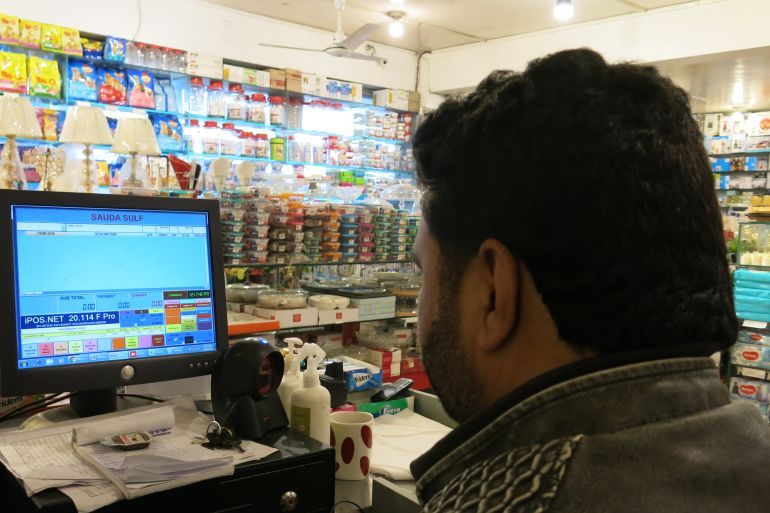Pakistan plans direct-pay system to make economy more inclusive
Only a fraction of financial transactions in Pakistan are on the books, but a new government-run digital cash transfer system aims to change that.

Pakistan has announced a new government-run instant digital payment system in a bid to boost financial inclusion and government revenue in the country, where only a fraction of economic transactions occur on the books.
The new system, called “Raast” or “direct way”, will be rolled out in three phases culminating in early 2022, officials from the State Bank of Pakistan said on Monday.
Keep reading
list of 4 itemsPakistani authorities work to restore power after blackout
Pakistan welcomes revival of ties between Qatar, Saudi-led bloc
Poachers’ paradise: Gulf hunts fuel Pakistan falcon trafficking
Developed through a multiyear collaboration between the State Bank of Pakistan and the Bill & Melinda Gates Foundation, with support from the World Bank, the United Kingdom and the United Nations, Raast has a goal of boosting the involvement of women in the formal economy.
Several private-sector digital cash transfer systems that do not require a bank account – such as JazzCash, operated by telecommunications company Jazz, and Easypaisa, operated by telecommunications company Telenor Pakistan – are already available in Pakistan, but Raast would be the first to link government entities and financial institutions.
“I hope that in years to come we will look back and see this new digital public good as an important contribution to our shared goal of giving all people the tools they need to lift themselves out of poverty,” Bill Gates said in a statement read out at the announcement on Monday.
Merchants, businesses, individuals, fintechs and government entities will be able to send and receive near real-time payments through the internet, mobile phones and agents.
Government payments, including salaries and pensions, will also be made through Raast, as well as payments for nationwide financial support programmes, such as the Benazir Income Support Programme, and the Ehsaas Emergency Cash programme.
Pakistan’s ability to curb illegal financial transactions, including the financing of militant and extremist groups, has been under close scrutiny from international financial watchdog the Financial Action Task Force.
Prime Minister Imran Khan, whose government has taken steps to automate collection of taxes on transactions and tightened rules on banking, said shifting away from a cash-based economy and tackling corruption were the chief motivations behind Raast.
“Pakistan collects about the least amount of tax in the world,” Khan said. “We cannot build infrastructure, we cannot work on human development, or educate children, or improve hospitals.”